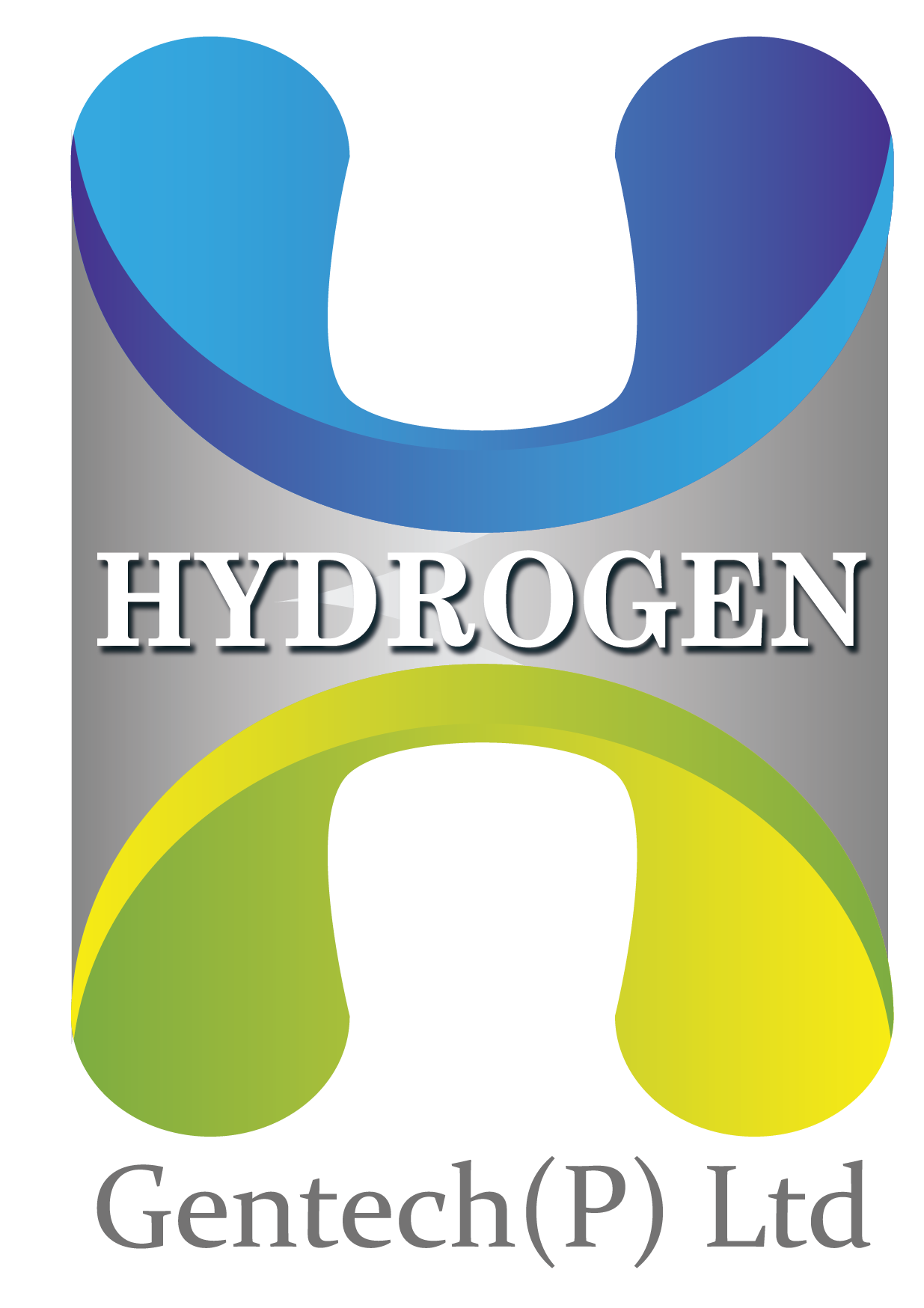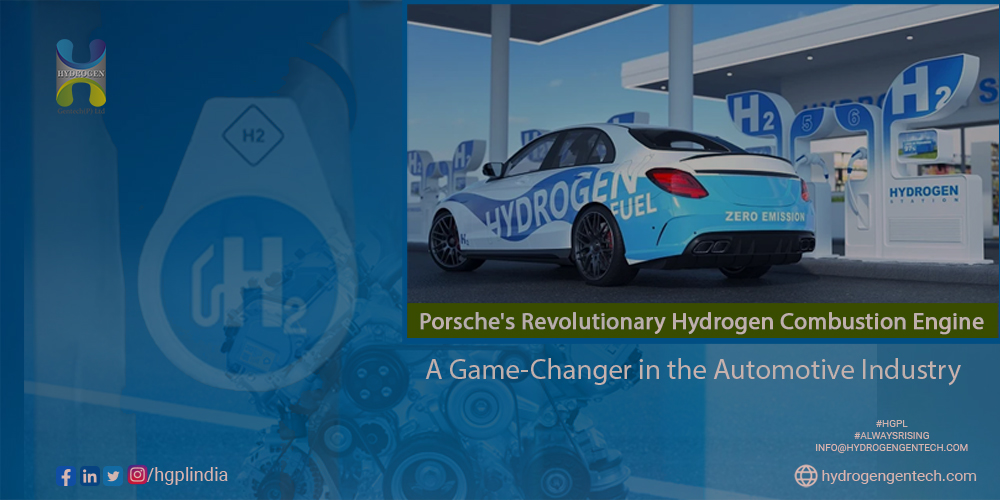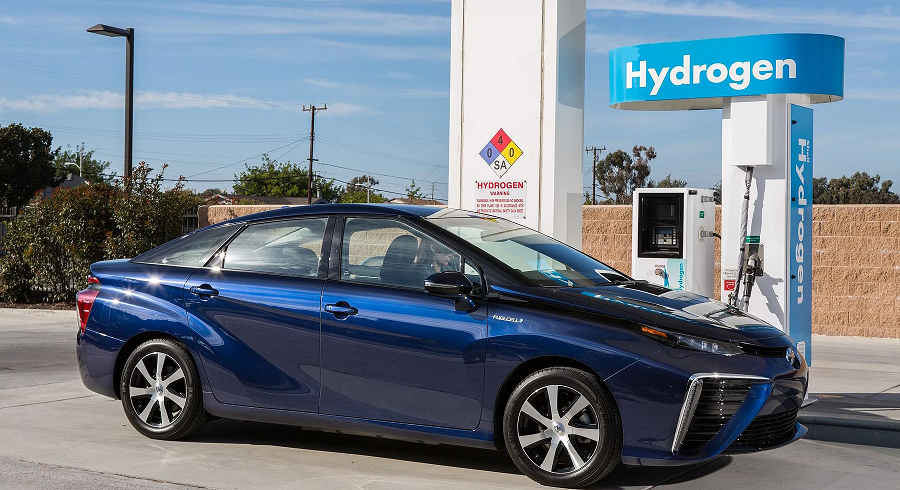The automotive industry has been witnessing a significant shift towards electric vehicles (EVs) in recent years. However, Porsche, the renowned German automobile manufacturer, has recently made an astonishing announcement that could potentially challenge the dominance of EVs. Porsche’s development of a hydrogen-powered internal combustion engine has raised eyebrows and sparked excitement in the industry. In this article, we will delve into the details of Porsche’s revolutionary hydrogen combustion engine and explore its potential implications for the automotive industry.
The Rise of Hydrogen Technology
Hydrogen technology has long been considered a promising alternative to traditional gasoline engines. While the focus has primarily been on electric vehicles, Porsche’s latest innovation has reignited the discussion around hydrogen-powered engines. Contrary to popular belief, hydrogen technology is not on the brink of extinction. In fact, Porsche has successfully developed a hydrogen-powered internal combustion engine that outperforms gasoline engines. This breakthrough challenges the notion that hydrogen technology is dying out and opens up new possibilities for the automotive industry.
The Power of Porsche’s Hydrogen Engine
Porsche’s secret weapon lies in its unique hydrogen engine, which has the potential to disrupt the EV industry. The company has combined urea-based catalytic reduction and hydrogen from renewable sources to create a fast and clean engine. This innovative approach not only revolutionizes the concept of performance cars but also addresses environmental concerns. Porsche’s hydrogen engine offers superior performance compared to traditional gasoline engines, making it a game-changer in the automotive industry.
Carbon-Neutral Fuel for Existing Combustion Engines
In addition to their hydrogen engine, Porsche is also investing in the development of a carbon-neutral fuel that can be used in existing combustion engines. This move allows Porsche owners to continue using their cars without worrying about pollution. Despite the high production cost, Porsche remains optimistic about the potential of carbon-neutral fuel, as it aligns with their commitment to sustainability. By exploring e-fuels as a viable solution, Porsche presents a refreshing approach to sustainable transportation.
Customer Feedback and Decision-Making Process
Porsche’s commitment to customer satisfaction is evident in their decision-making process. The company understands the importance of considering the needs and concerns of their customer base. Customer feedback has played a significant role in shaping Porsche’s approach to hydrogen technology and carbon-neutral fuel. By actively listening to their customers, Porsche ensures that their innovations align with market demands and preferences.
Coexistence of EVs and Hydrogen Technology
While Porsche’s hydrogen engine showcases the potential of hydrogen technology, it is important to remember that the journey to sustainable mobility is not a race with one clear winner. Instead, it is about finding various solutions that can coexist to serve different needs and preferences. Porsche’s continued exploration of e-fuels and hydrogen technology presents an inclusive approach to sustainable transportation, without abandoning EVs. This balanced strategy allows for a diverse range of options and ensures that consumers have choices that align with their specific requirements.
Potential Impacts on the Automotive Industry
Porsche’s groundbreaking hydrogen combustion engine could have several significant impacts on the automotive industry. Firstly, it challenges the dominance of EVs by providing an alternative technology that offers superior performance. This competition fosters innovation and drives advancements in both EVs and hydrogen-powered vehicles. Secondly, the development of carbon-neutral fuel for existing combustion engines extends the lifespan of conventional cars, reducing the need for immediate replacement with EVs. This transition allows for a smoother and more gradual shift towards sustainable transportation.
Collaboration and Partnerships
Porsche’s commitment to innovation extends beyond their internal efforts. The company actively seeks collaboration and partnerships with other industry players to drive progress in the field of hydrogen technology. By working together, automakers can share knowledge, resources, and expertise to accelerate the development and adoption of hydrogen-powered vehicles. This collaborative approach ensures that the industry as a whole benefits from advancements in technology and sustainability.
Public Perception and Acceptance
One of the key challenges for Porsche and other automakers exploring hydrogen technology is public perception and acceptance. While EVs have gained significant popularity in recent years, there is still a need to educate consumers about the benefits and potential of hydrogen-powered vehicles. Porsche, with its reputation for excellence and performance, has the opportunity to shape public opinion positively and drive acceptance of hydrogen technology.
Government Support and Regulatory Hurdles
Government support and favorable regulations play a crucial role in the widespread adoption of hydrogen technology. Porsche recognizes the importance of regulatory frameworks that encourage the development and use of hydrogen-powered vehicles. Despite the challenges and regulatory hurdles, Porsche remains committed to its vision of sustainable transportation and continues to work closely with governments and regulatory bodies to drive change.
Conclusion
Porsche’s innovative approach to hydrogen technology has the potential to revolutionize the automotive industry. Their hydrogen combustion engine, combined with the development of carbon-neutral fuel, presents a viable alternative to traditional gasoline engines. By actively listening to customer feedback and fostering collaboration with other industry players, Porsche demonstrates its commitment to sustainable transportation. While EVs have dominated the industry, Porsche’s hydrogen engine offers a compelling alternative that challenges the notion of a one-size-fits-all solution. As the automotive industry continues to evolve, the coexistence of EVs and hydrogen technology will shape the future of sustainable mobility.



